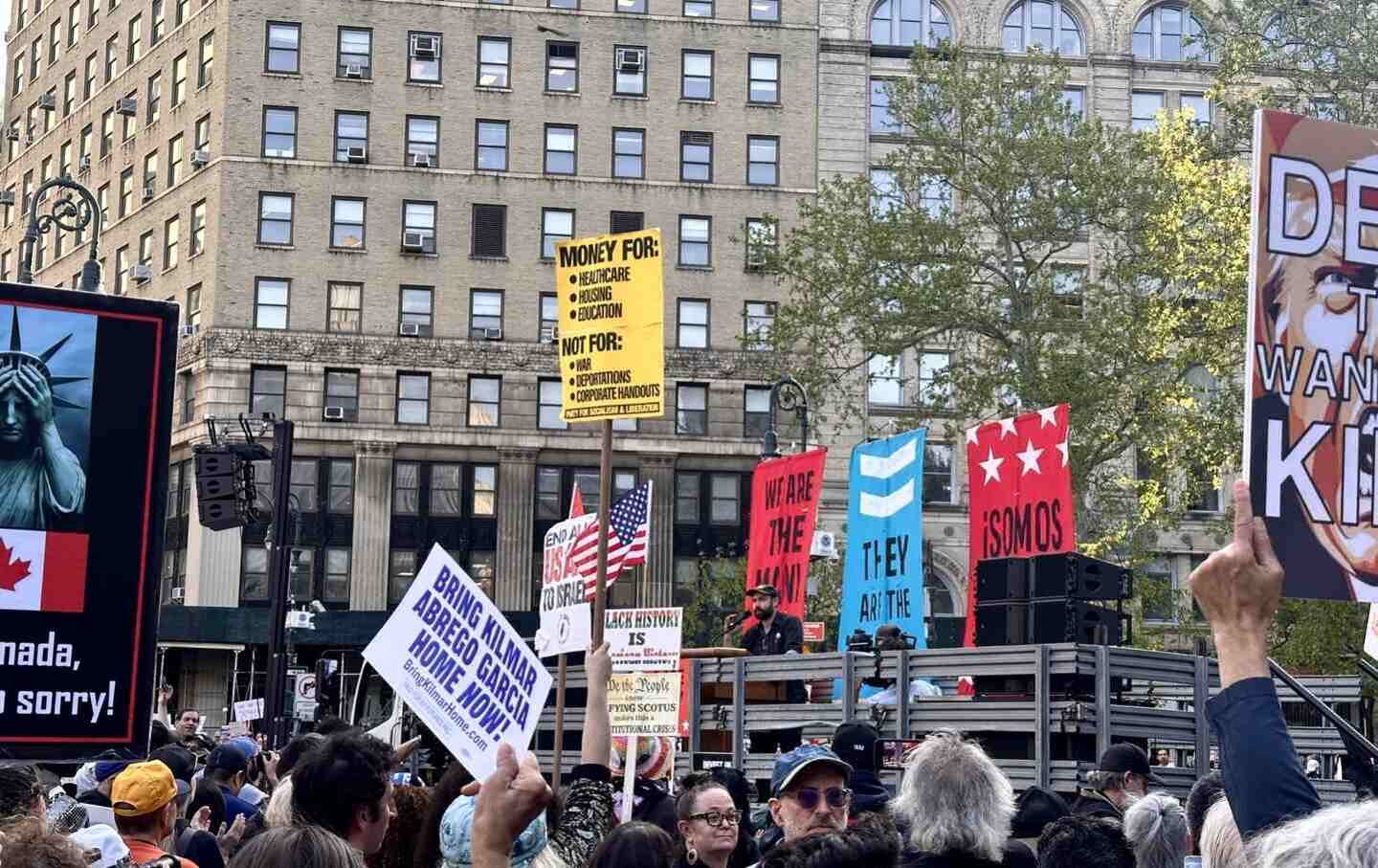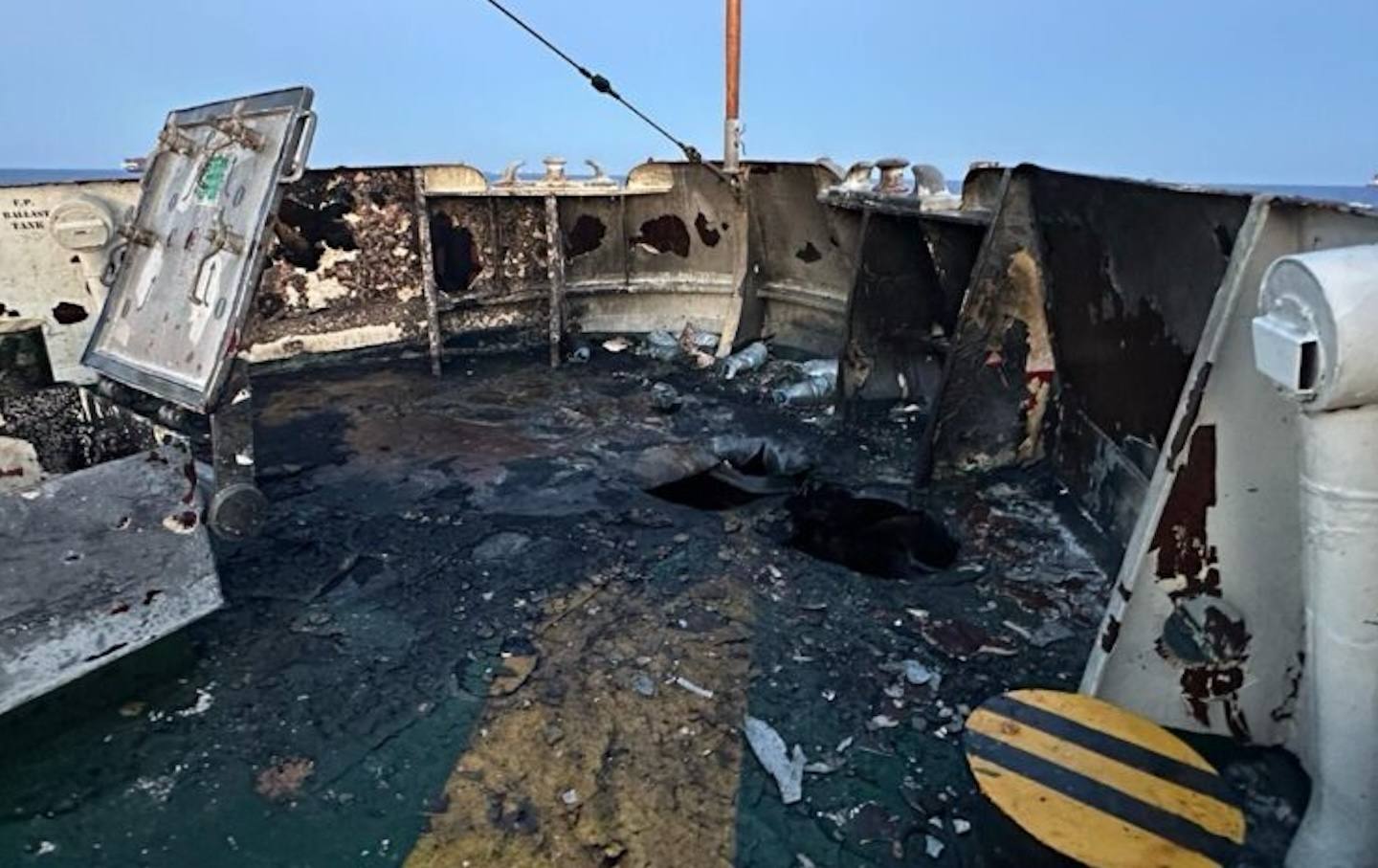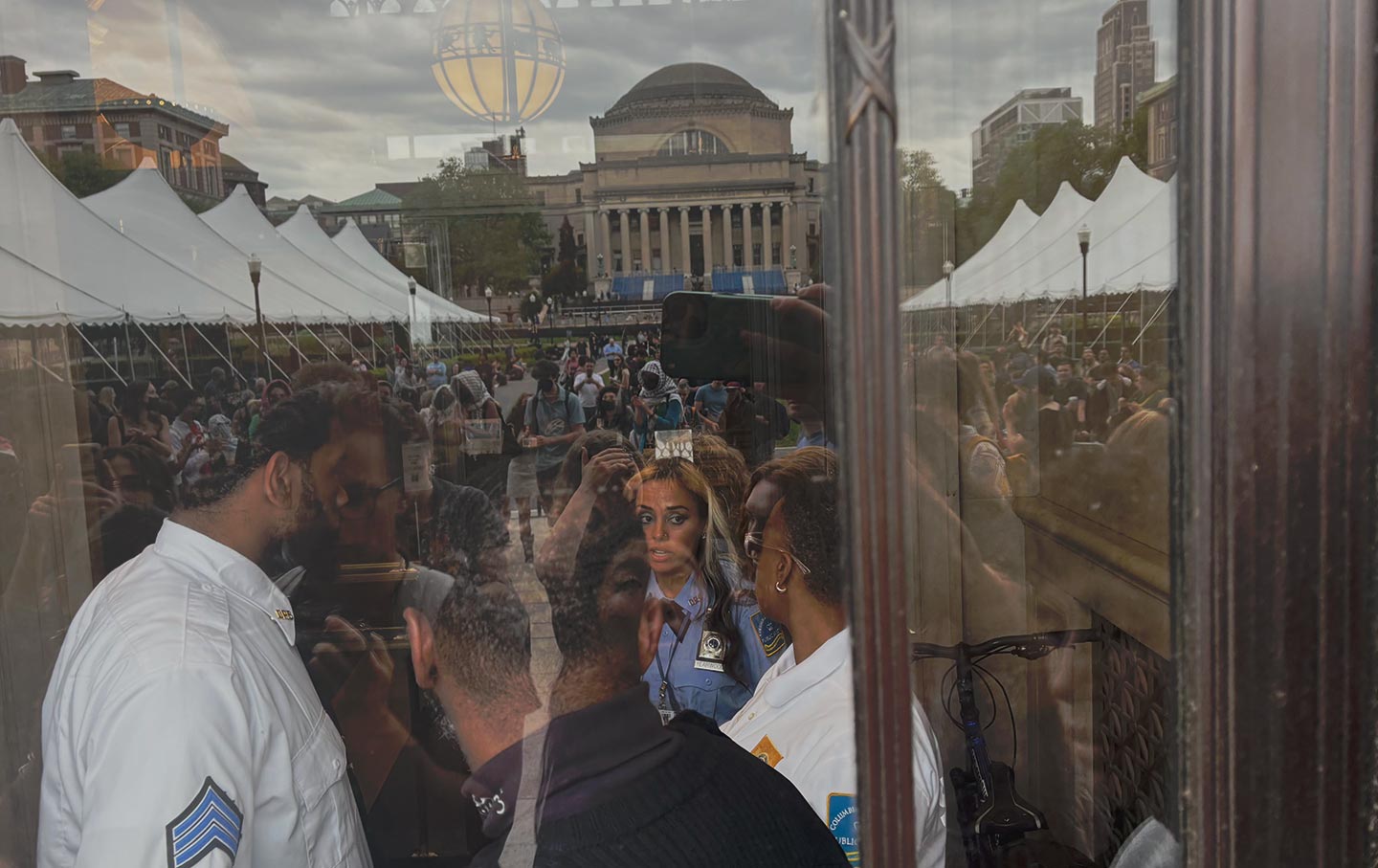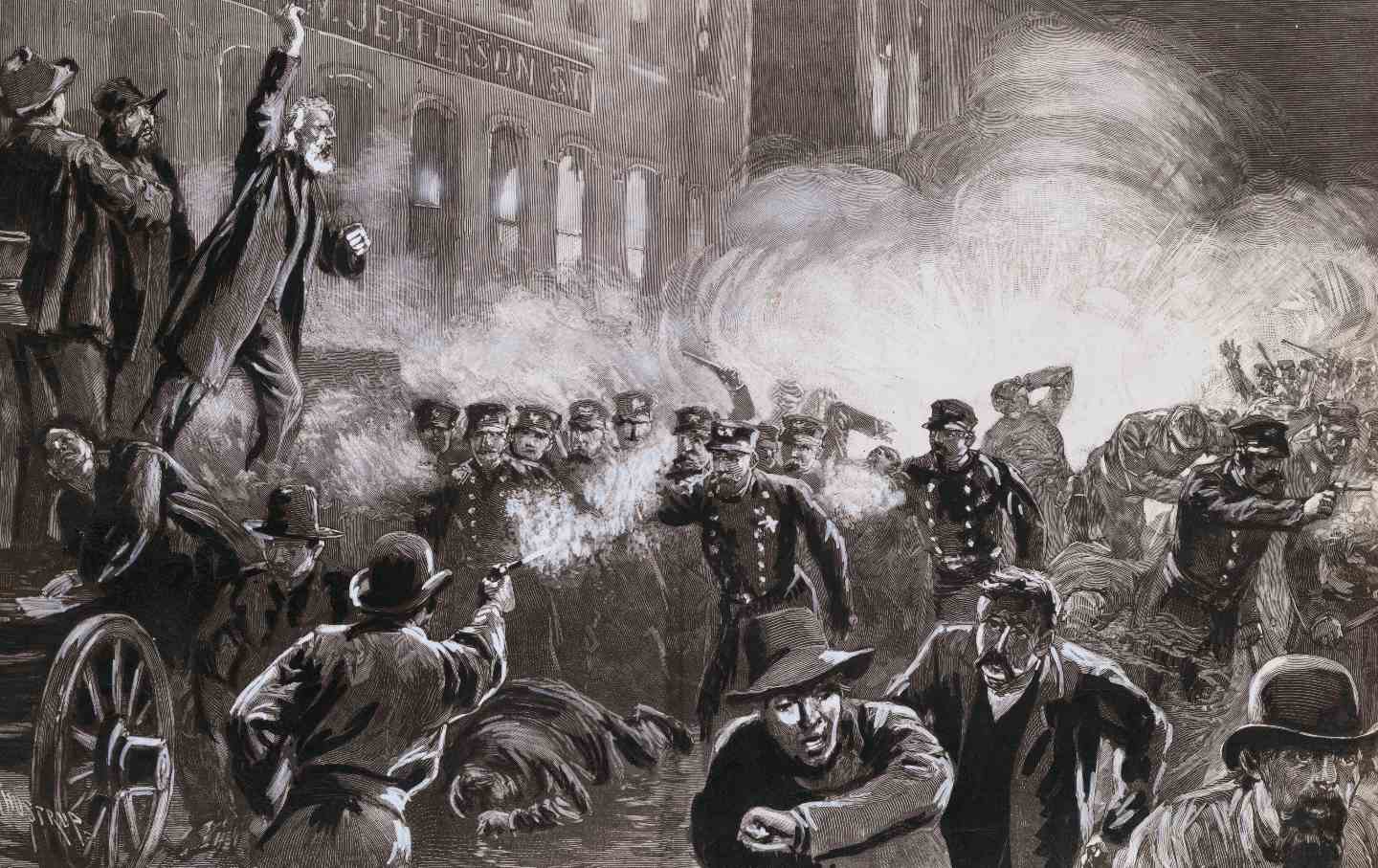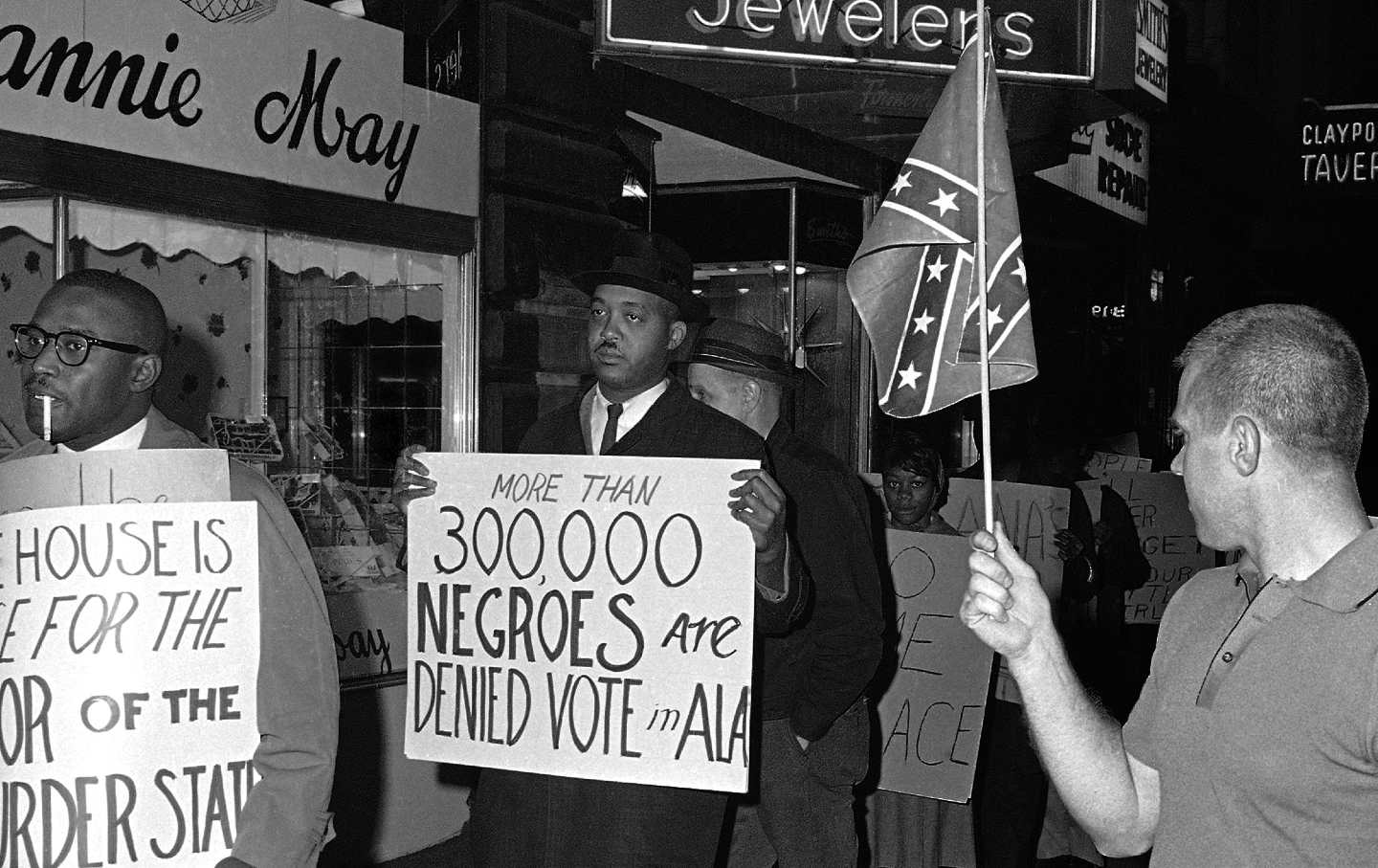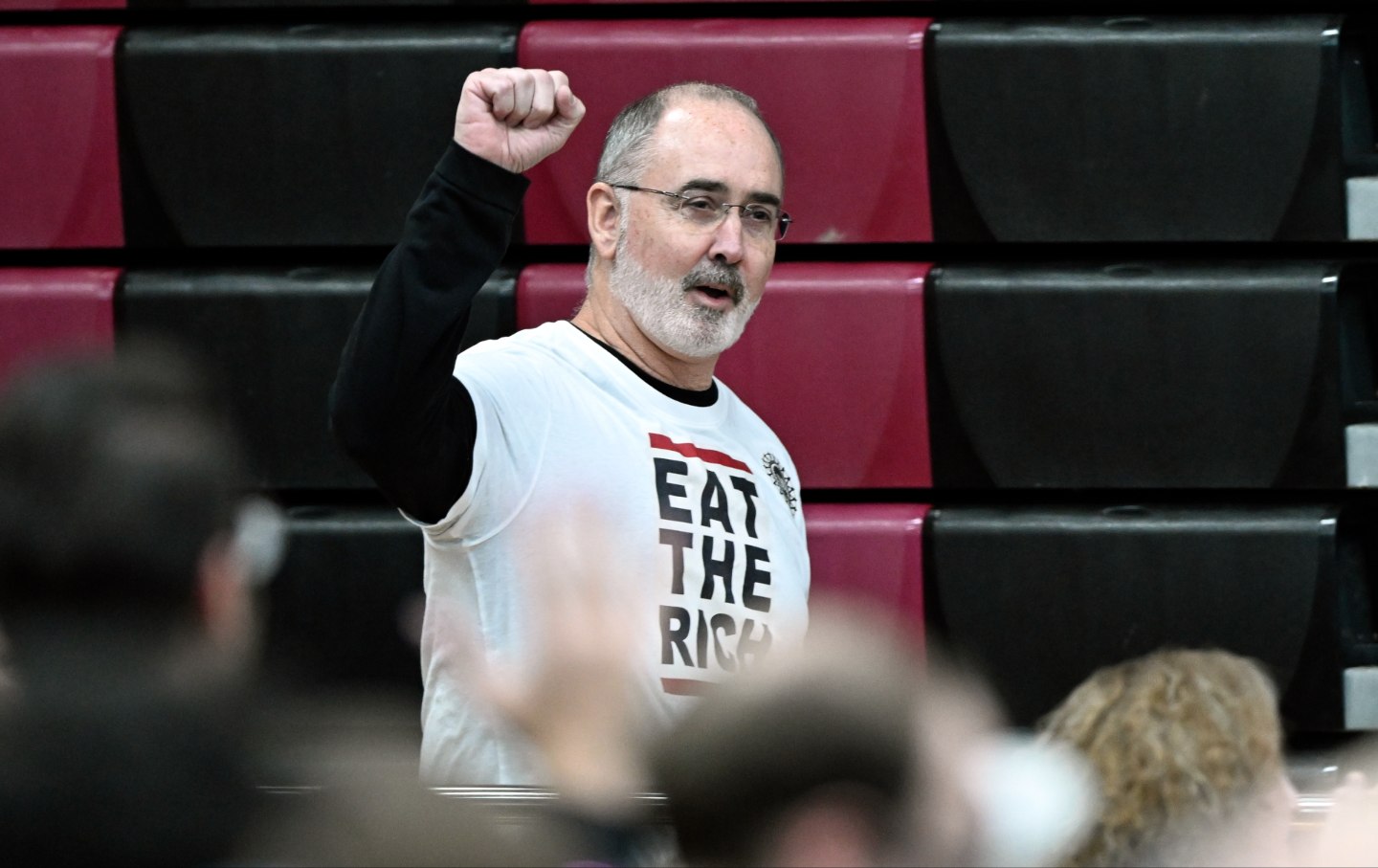What’s Next for the Pro-Palestine Student Movement?
“We are not just going to let campus life start as normal.”
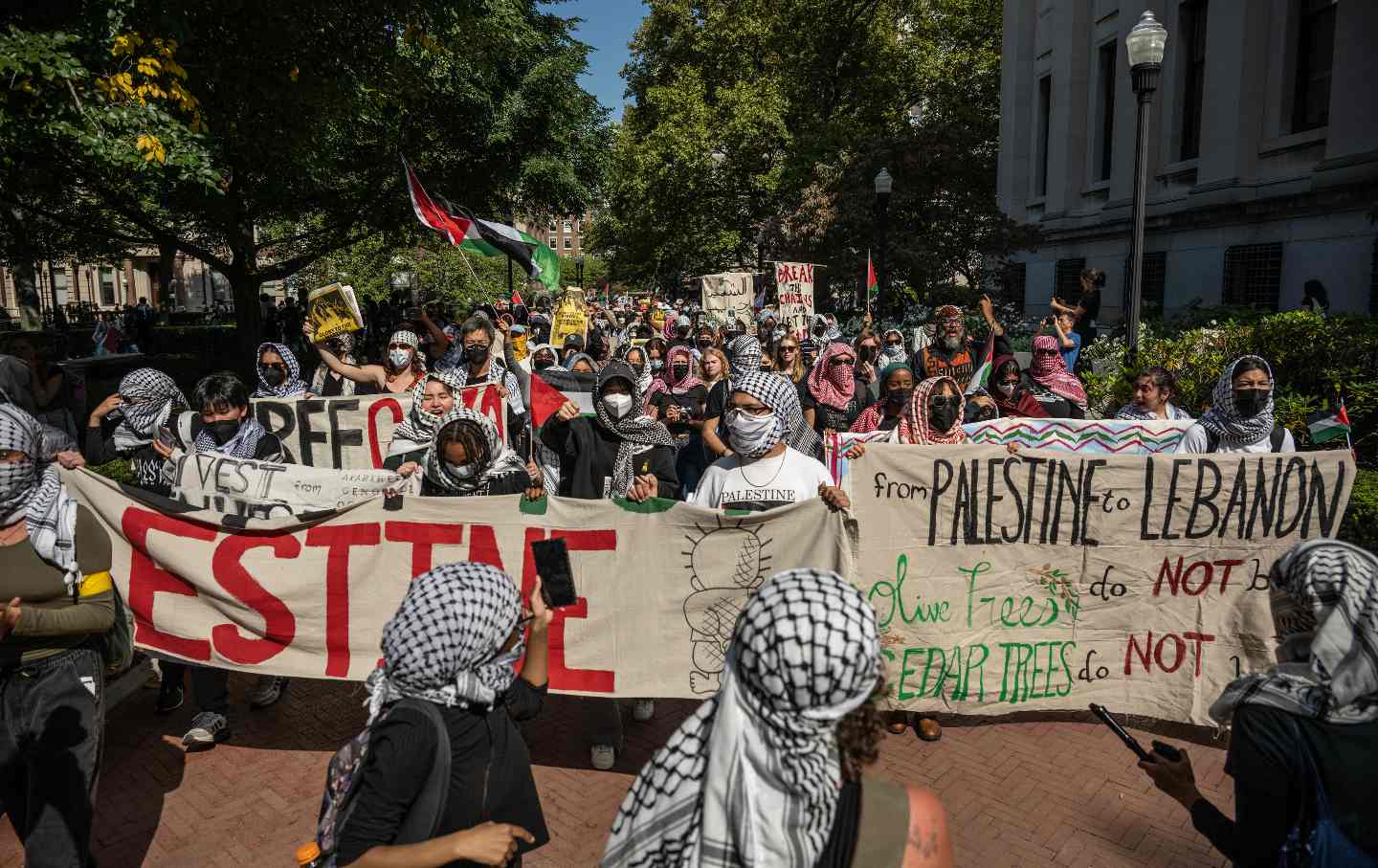
The student anti-war movement was decisively reanimated in early 2024 as students established encampment after encampment to protest Israel’s genocide in Palestine, demanding divestment, a ceasefire, and an end to Israeli occupation.
Four months later, we witnessed two quintessentially American scenes: the silencing of Palestinian voices at the DNC, and students returning for the fall semester as their universities rolled out repressive anti-protest measures. In Gaza, no students returned to their classrooms; every last university has been devastated by Israel’s military assault. At the DNC, Democrats denied Palestinian Americans a speaking slot to represent the National Uncommitted Movement. Both dramas are linked by a shared project: the disciplining of the pro-Palestine mass movement and a refusal to acknowledge, condemn, or halt the proliferating scale of Israel’s annihilation of Palestine, as the apartheid state expands into the West Bank and launched a ground invasion in Lebanon.
Nas Issa. from the Palestine Youth Movement. argues that students are most powerful when they’re in a dialectical relationship with the broader movement—by building off, taking notes from, and establishing new possibilities. The student movement’s hypervisibility enables a splintering of mainstream narratives about the legitimacy of Israel’s actions and makes the topic of Gaza unavoidable, which occurred during the swell of encampments. “There should be no part of campus that you can walk through without confronting the reality of Palestine,” said an organizer with Students for Justice in Palestine at UC Berkeley.
While the millions protesting in the streets address a more diffuse enemy, the site specificity of the student struggle forces a direct confrontation with university administrations, which embody the international ruling class. The immediacy—and aggression—of universities’ responses demonstrate the student front’s ability to galvanize the movement writ large.
Pro-Palestine organizing at San Francisco State, the first college to achieve divestment from weapons manufacturers and a commitment to full divestment, was strengthened by the campus community’s class consciousness, its roots in the campus labor struggle, and the presence of a “militant faculty union,” said student organizer Ali Noorzad. For him, it’s important that students make the connection between their own housing and working conditions and the state’s investment in militarization and Palestinian death. SFSU has built exemplary cross-class solidarity with campus staff, maintenance workers, and faculty. Noorzad describes the campaign against tuition hikes and pay cuts: “We were at pickets at 5 am in the pouring rain…. Campus workers know we’re all in the struggle together.” During their encampment, the university president was forced to enter public negotiations because the mass arrest of hundreds of students would have triggered a political and economic crisis.
Shreya, a University of Michigan organizer with both the Graduate Employees’ Organization and the TAHRIR coalition, explains that “GEO can act as a bridge between students and labor, expanding the base to cover workers who are essential to the university. Campuses undercut their own power by describing themselves solely as student movements—it’s also a movement against antidemocratic, imperialist universities, which affects everyone.” Similarly, student workers at the University of Oregon have demanded divestment from weapon manufacturers, linking divestment from Israel with workplace ethics.
In contrast, at Princeton—a historically conservative campus with the fourth-largest endowment in the nation—we lost our graduate student union election in May. This occurred while the encampment stood its ground outside Nassau Hall and students faced arrest, eviction. and suspension from campus grounds.
This loss followed the anti-union campaign’s disingenuous cries that our graduate union legitimized “divisive politics” by its support of the BDS movement. After the successful occupation of the administrative building Clio Hall, the university attempted to pit staff against students. Later, the administration accused the encampment of inconveniencing facilities workers in order to draw fault lines between the pro-Palestinian movement and the labor struggle.
This reveals the inherent contradictions of organizing at smaller, elite schools, where divestment must confront the limits of working-class power on campus. Universities like Princeton must learn from public schools and resist the characterization of the movement as an insular student issue. This requires nothing less than genuine inter-class solidarity, sewn into a campaign that frames divestment as a nonnegotiable moral imperative, even during a Democratic campaign that hinges on the promise of a so-called “lesser evil.”
What’s next for the pro-Palestine student movement? Students spent the summer training, strategizing, researching endowments and investment structures, coordinating across campuses and organizations, and continuing to base-build. “We are not just going to let campus life start as normal,” echoed Noah Thompson, an organizer from UO. “Everything must be politicized.”
After the dilution and reappropriation of the demand for a permanent ceasefire, organizers at the DNC called for an arms embargo in exchange for their votes. Students play a crucial role in strengthening this demand. For PYM, students should continue to uplift the movement morale by demanding full financial divestment from Israel, as it threatens the university’s bottom line, forces them into negotiations, and ties into the national call for an arms embargo. While the Democratic Party reconfirmed its commitment to genocide and apartheid, nearly seven in every 10 voters support a permanent ceasefire. The pro-Palestine movement must continue to clarify that it is not refusing to “fall in line,” but demanding that the Democratic Party orient its policies around the demands of its electorate.
As UM organizer Shreya points out, the election has changed the political terrain of campus organizing. Noorzad agrees that the movement cannot succeed without meaningful engagement with the election: “If we want to stop this genocide, it’s not going to happen by being nice and hoping for concessions. They’re only going to change their minds if we make them, through building independent power.” The National Uncommitted movement announced that it would not endorse Kamala Harris for president, but urged supporters to vote against Donald Trump. The DSA considered a“ no votes for genocide” campaign, committing to not voting for anyone who has supported the genocide; however, the resolution was defeated at the national level. Other groups, such as the NJ Muslim Civic Coalition have endorsed Jill Stein. Sami, a leader of the coalition and Palestinian American who has lost over 35 members of his family since October 7, explains this strategy. “Our community has fought for the right to citizenship and vote in this country. Endorsing Jill Stein allows our community to vote with their conscience and be counted in this election. By refusing to engage in the two-party system, we are working towards a long-term vision. As a community, we are not going to simply follow along and take scraps.”
“For many Arab and Muslims in this country, this is a clear single-issue election,” said Sami. However, he advocates for a slightly altered approach in swing states. “We need a bifurcated strategy. In swing states, the decision on whether to vote for Harris is more complicated. But swing-state voters can carry this entire election, and the worst they can do is give an early endorsement and lose leverage.”
Of course, the election is not the only challenge campus movements face this fall. Alongside glacial bureaucratic processes that stonewall student demands, universities are increasingly serving as laboratories for new forms of counter insurgency and repression. Campus administrations such as NYU and University of Michigan have responded to the growing economic and political threat of student power by attempting to make it de facto illegal to support the fundamental Palestinian right to life. Recently, Cornell threatened to suspend and deport a graduate student after he protested Lockheed Martin at a job fair.
Shreya points out that most people imagine spectacular images of mass arrests when they think of student repression, but she describes increasing surveillance and backdoor policy changes at UM as “a continuous onslaught of any tactic the university can think of. Criminal repression is the tip of the iceberg.… The university has declared war on pro-Palestine organizing on every front.”
Popular
“swipe left below to view more authors”Swipe →At Princeton, resisting this repression is a daily practice. The court has refused to accept plea deals for students involved in the Clio action and the University imposes arbitrary rules to further limit student free speech and organization. About a dozen faculty who have been supportive of our movement are under investigation, with some receiving year-long probations and being passed up for promotions.
The most effective way to build a culture of security and safety is to develop open organizational structures and base-build outwards, beyond the gates of individual institutions and even the activist-core initiated by our encampments. Paradoxically, a radical openness that foments mass participation—across students, faculty, staff, and community—could reduce risk for everyone and confront an intensifying regime of deliberate fear.
A faculty member at Princeton’s School of Public and International Affairs remarked, “PU has never turned its corporate firehose against its own students the way we have seen it move against the large and diverse movement organizing on campus for Palestine over the past year.”
Professor Lorgia García-Peña from the African American studies department agreed. “Academic freedom, freedom of expression, the right to protest and dissent are all under attack, what and how we teach is under scrutiny—particularly for those of us who are Black, ethnic and Palestinian studies scholars. Universities should be sites of freedom making. But we are moving away from these values and the catastrophic effects on our scholarship and the future of universities will be felt for generations.”
Amid escalating repression, many chapters of the Young Democratic Socialists of America are in the early stages of considering a national student strike. “Our next north star is a student strike and to shut down campuses across California for Gaza, but we’re clear that it won’t happen by just having a few organizations announce it and expecting everyone to follow,” said Noorzad. “Students have to look left and right in class and know that their peers will join them on the picket.” In terms of November, Thompson from UO says “the election is an important date in our mind for escalatory actions. We know the importance of those timelines.”
To escalate further, Noorzad, Thompson, and Jo Von Von Maack, an organizer from CUNY Hunter College talk about flyering students, making announcements in classes, collecting petition sign-ups, hosting rallies, and holding democratically-run general assemblies in public spaces. Von Maack says CUNY organizers are also adopting the Black Panther model. “We recognize that a lot of students don’t have their basic needs met, so we’re also offering food, a hookup for free metrocards, and other immediate needs. Our union should also be a place to fill in gaps that the school doesn’t provide as they spend money on policing and war.”
For campuses that are building a core base, Thompson advises that “for a national student strike, it’s not about building to a 100 percent strike and executing it perfectly. It’s about building a strong base of 20-30 percent so that when the national moment comes, your campus can be one of the dominos that falls—just like with the encampments.”
Holden Taylor, an organizer with the CUNY on Strike formation of the Professional Staff Congress and adjunct professor, affirms the urgent need for student unionism but is skeptical of a student strike in the near future. “We have learned that the moral righteousness of Palestine is not sufficient. To have real solidarity across borders, we must win over our institutions. The only way to win them over is by building independent and political organizations that can truly struggle, such as student unions. ” Taylor believes that attempting to strike too early would expose people to incredible amounts of repression. They say, “we are seeing masses develop more consciousness than we have in a long time, but we cannot replace the slow process of relationship, trust building, and structure-testing that is required for a successful strike.”
To Ben Mabie, member organizer of NewsGuild, a mass strike is “a dim prospect in the next few months, but there’s absolutely no reason to think it’s not in the cards.” Students could take cues from the “Sickout” by CUNY on Strike or the UC worker strike in California to connect labor rights at home to the international struggle for Palestine, which has always included the working-class.
The strike—with its roots in the labor movement and student unionism—might also allow students to center a truly international and working-class movement for Palestine. With close to 200,000 estimated dead in Gaza, more than 2,000 dead in Lebanon, 11 months of genocide, 76 years of occupation, an American political and media ruling class closing ranks around Israel, and universities miring students in processes of administration, it’s difficult to stay mobilized through the immensity of our grief, fear, and rage. But as students have already shown, we can activate this complex of feelings by putting our places in the imperial core repeatedly on the line, alongside each other. The key—whatever tactic campuses choose—will be to both leverage the student position and push beyond.

